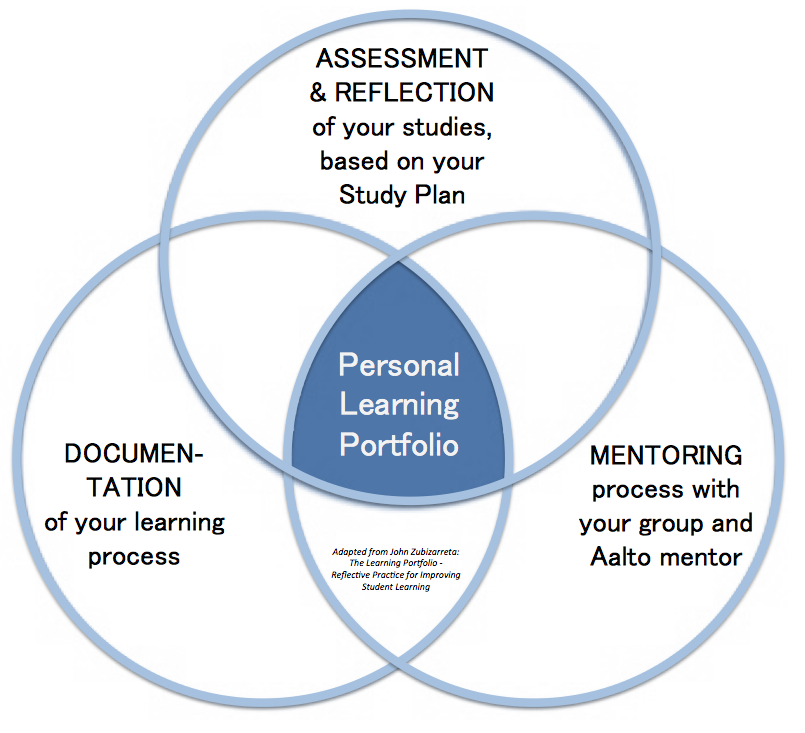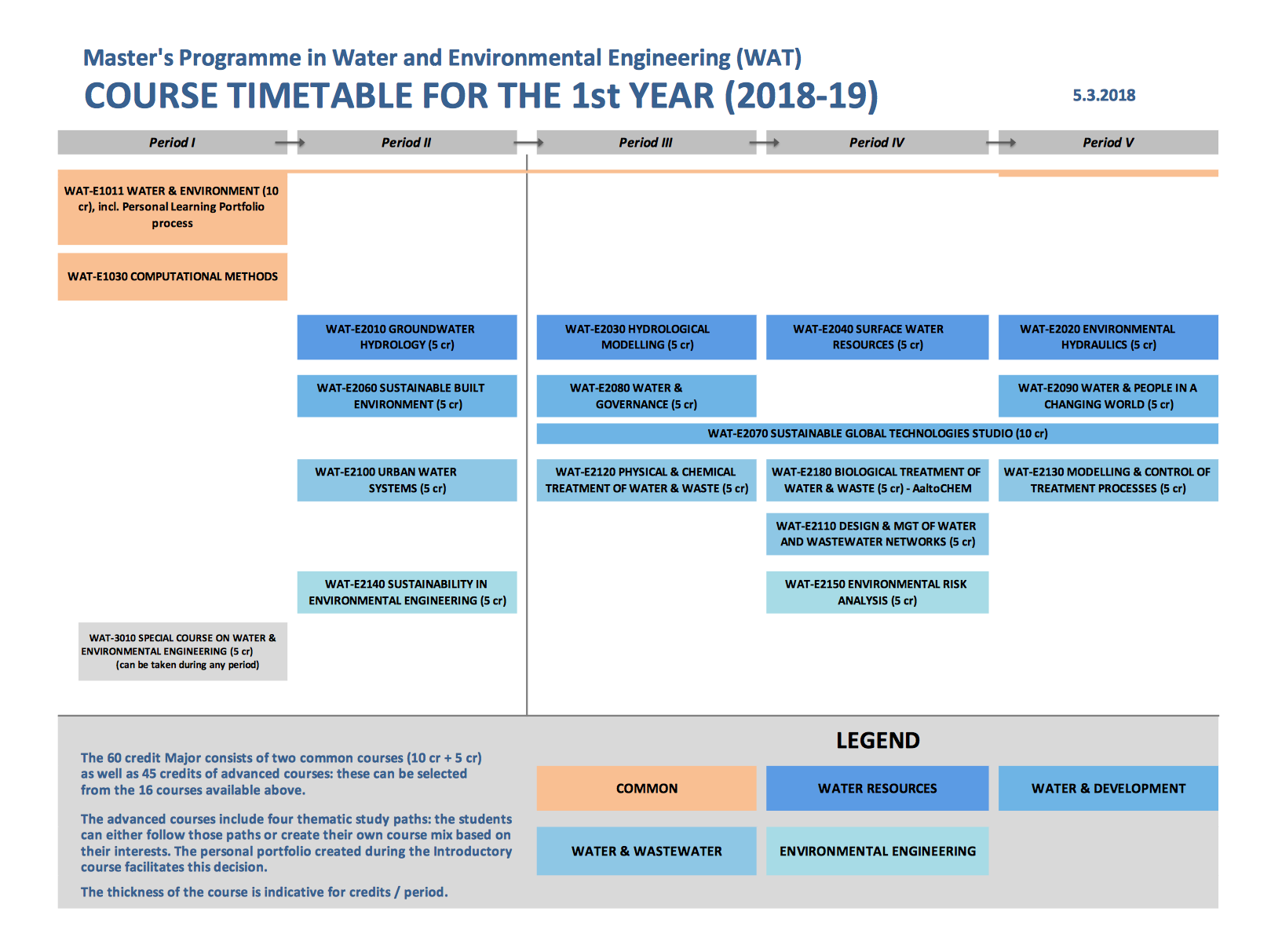Water and Environmental Engineering, Portfolio 2018 -
Osion kuvaus
-

NOTE: This page is no longer updated. Please, see here for the updated information on WAT Portfolio, Master's Thesis process, and well-being:
Course: WAT Personal Learning Portfolio, Topic: Master's Thesis Process (aalto.fi)
However, you can still submit your final portfolio version through the submission box in this page.
These pages provide you information about Personal Learning Portfolio (PLP) that all WAT degree students will do as part of their studies. For general information related to your studies, please have a look at the Into pages of our WAT Master's Programme.
The aim of the portfolio process is:
- To assess and reflect your summative learning, based on your Personal Study Plan (PSP) -> This also helps you to plan your future studies
- To learn to document your skills and knowledge
- To do all this together with your fellow students (mentor group) and your Aalto mentor
The portfolio process runs throughout the entire Master's Programme, and you have to submit your final portfolio before graduating from our Master's Programme. It does require time, but you are also credited for that: 2 credits of WAT-E1011 course are allocated for the portfolio process, corresponding some 54 hours of work.
Majority of the work on portfolio is done individually as well as with Mentor Groups that were formed during the WAT Orientation Days. You must include a short reflection of your meeting as an Annex to your portfolio. For more details, see the instructions document below.
The portfolio process also includes meetings with your Aalto Mentor (a member of WAT staff). Timetable for those meetings is agreed separately with your mentor.
In order to keep track of your portfolio process, you must submit an updated version of your portfolio through Submission sub-page on left (requires Aalto login). For more information, browse these pages or contact Meeri or Marko.
WAT Common Courses and Advanced Courses
The portfolio process aims to ensure that you make most out of your Master's studies, and it therefore links closely to your personal Study Plan (PSP). To help you plan your studies, the diagram below (also available below as a separate file) shows the timetable for WAT common courses i.e. 2courses (in orange during Period I) as well as advanced courses in (in different shades of blue in Periods II-V).

-
This document shows the general weekly timetable for the contact sessions of WAT Advanced Courses during academic year 2018-19. The courses are planned so that you are able to take any combination of our advanced courses without overlapping contact sessions. The timetable are indicative only, and you should check the final timetable from Oodi and MyCourses.
-
We carried out an online survey for our WAT alumni in summer 2017. This file synthesises the survey's main results that are used to develop our Master's Programme. For more information, see Anu Vehmaa's Master's Thesis "Working life of water and environmental engineers" as well as the journal articles presenting research related to our Master's Programme in Sustainability journal and in Yliopistopedagogiikka journal (in Finnish).
-
The portfolio process links closely to the Study Plan (eHOPS) you must submit to Sisu: deadline for the first version of the study plan is already at the end of Period I and 2courses.
In addition to Sisu, you can use attached word document to plan and document your courses.
More information about study plans: https://into.aalto.fi/display/enwat/Planning+your+studies
-
Attached is the synthesis report for WAT Feedback Survey 2019 that we sent to you in April 2019 and that we go through together in WAT Synthesis Session on Wed 29.5.2019. The survey focused on your studies, looking at the competences you have gained as well as general views on our programme and its 2courses module. While providing important feedback to us to develop our programme, your responses hopefully also helped you to reflect and synthesise your learning. Thank you for your answers!
- To assess and reflect your summative learning, based on your Personal Study Plan (PSP) -> This also helps you to plan your future studies
